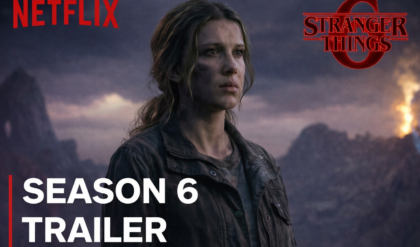Baldur’s Gate 3, crafted by Larian Studios, is a monumental RPG celebrated for its branching narratives, rich companion dynamics, and emotionally charged romances. Among its standout characters is Shadowheart, the half-elf Cleric whose journey from Sharran devotee to potential Selûnite liberator captivates players. Her romance arc, one of the game’s most popular, blends vulnerability, passion, and moral complexity as she navigates her faith and identity. But what happens when a romanced Shadowheart expresses a desire to have children? While not explicitly part of the game’s canon, this hypothetical scenario—sparked by fan discussions and cut content hints—raises fascinating questions about her character, your relationship, and the broader implications for Baldur’s Gate 3’s world. This article explores how Shadowheart’s wish for kids might unfold, drawing on her narrative, community speculation, and the game’s thematic depth to imagine its impact on your romance.
The Roots of the Speculation
The idea of Shadowheart wanting children emerges from fan communities on platforms like X and Reddit, where players dissect her romance and story. Her arc, centered on the “Daughter of Darkness” quest, focuses on her struggle with Shar’s manipulation, her rediscovery of her Selûnite roots, and her reunion with her parents, Arnell and Emmeline Hallowleaf. While the game never directly addresses parenthood, cryptic dialogue and cut content fuel speculation. For instance, a line from Sceleritas Fel in Dark Urge playthroughs hints at a companion’s potential pregnancy, with some players interpreting it as tied to Shadowheart’s romance. A Reddit thread from 2023 speculated, “What if Shadowheart’s ending included a family? It fits her arc of breaking Shar’s cycle.”
This aligns with Shadowheart’s emotional growth. In her Selûnite path, she embraces hope and connection, suggesting openness to a future beyond her past trauma. Her romance, which evolves from cautious flirtation to deep commitment, includes tender moments like swimming under the stars or sharing wine at camp. These scenes, combined with her parents’ presence in Act 3, hint at a longing for family, making the idea of her wanting children plausible. On X, one player mused, “Shadowheart settling down with kids after all she’s been through feels so right, but also terrifying for her.”
Shadowheart’s Character: Ready for Motherhood?
To understand how Shadowheart might approach motherhood, we must consider her personality and arc. Born Jenevelle Hallowleaf, she was kidnapped by Sharrans as a child, stripped of memories, and raised to serve Shar, the goddess of loss. Her journey in Baldur’s Gate 3 is one of reclaiming agency, whether by rejecting Shar for Selûne or doubling down as a Dark Justiciar. Her romance reflects this complexity: she’s guarded yet yearning, fiercely independent yet craving connection. By Act 3, a romanced Shadowheart opens up, sharing her fears and dreams, suggesting she’s ready for a deeper bond.
Her desire for children would likely stem from her arc’s resolution. In the Selûnite path, reuniting with her parents and embracing her true identity could inspire her to build a family free from Shar’s shadow. Her parents’ love, despite their suffering, might awaken a maternal instinct, especially if she imagines giving a child the childhood she lost. Conversely, in the Sharran path, her desire for kids could take a darker turn, with Shar’s influence framing motherhood as a means of control or legacy, potentially clashing with the player’s goals.
Shadowheart’s personality—witty, resilient, and emotionally layered—would shape her approach to parenthood. She’d likely be a protective, fiercely devoted mother, tempered by her sardonic humor. Her romance dialogue, like joking about “running away together,” suggests she’d want a partner fully committed to this future. However, her lingering trauma from Shar’s manipulation could make her hesitant, fearing she’d pass on her pain or fail as a parent. This tension would create a compelling dilemma for the player.
How a Child-Wanting Shadowheart Impacts Your Romance
If Shadowheart expressed a desire for children, it would introduce a pivotal moment in her romance, likely in Act 3 or the epilogue, after her major choices. The game’s structure, with its emphasis on player agency, suggests this would be a dialogue-driven decision, allowing you to support, oppose, or negotiate her wish. Let’s explore how this might play out across her two main paths:
Selûnite Path: In this scenario, Shadowheart’s desire for kids would align with her redemption. After sparing the Nightsong and reuniting with her parents, she might confide her dream of starting a family, seeing it as a way to honor her reclaimed identity. Dialogue could involve her asking, “Do you ever think about a life beyond this? A home, maybe… children?” Supporting her would deepen your bond, potentially leading to an epilogue where you settle in a Selûnite enclave, raising a child under her parents’ guidance. Opposing her might strain the relationship, as she’d see it as rejecting her vision of a hopeful future. A compromise—delaying parenthood until you’re both ready—could preserve the romance while acknowledging her trauma.
Sharran Path: If Shadowheart becomes a Dark Justiciar, her desire for children might be more troubling. Shar’s doctrine of loss could frame the child as a tool for the cult, with Shadowheart envisioning them as a future Sharran. She might say, “A child could carry Shar’s will, our legacy.” Agreeing would align you with her dark path, potentially ending with you raising a Sharran acolyte, but at the cost of her humanity. Disagreeing could fracture the romance, as she’d view it as betrayal. This path would highlight the moral cost of her choices, forcing you to confront whether love can endure such divergence.
Gameplay-wise, her desire could trigger new camp interactions. You might discuss parenting with other companions, like Astarion scoffing at the idea or Wyll offering idealistic advice. Quests could involve preparing for this future, such as securing a safe haven or seeking Selûnite blessings. If pregnancy were implemented (as hinted by cut content), Shadowheart might face temporary combat debuffs, balanced by unique abilities tied to her faith, like a Selûnite aura or Sharran curse. These mechanics would mirror the game’s approach to companion quests, blending narrative and strategy.
Why No Canonical Kids?
Baldur’s Gate 3 avoids explicit parenthood arcs, likely due to narrative and technical constraints. Shadowheart’s story is already dense, with multiple endings based on her faith, parents, and romance. Adding a child would require extensive dialogue, animations, and outcomes, potentially bloating the game’s scope. Thematically, her arc focuses on self-discovery and healing, not legacy, making parenthood a secondary concern. The cut Sceleritas dialogue, referencing “siring spawn,” suggests Larian explored this idea but scrapped it, possibly to avoid sensitive topics or maintain tonal consistency amid the game’s apocalyptic stakes.
Community reactions also played a role. While some fans on X embrace the idea, imagining Shadowheart as a mother, others argue it would shift focus from her personal growth. A 2024 Reddit post noted, “Kids would be cute, but Shadowheart’s story is about her, not her hypothetical family.” Mods like “Really Shadowheart” enhance her romance with deeper interactions, but none add children, reflecting mixed interest in this concept.
Fan Speculation and Cultural Context
The fascination with Shadowheart wanting kids reflects broader RPG trends, where players crave long-term consequences for romances. Games like Dragon Age: Inquisition and Mass Effect allow companion relationships to evolve post-campaign, fueling demand for similar depth in Baldur’s Gate 3. Shadowheart’s romance, with its emotional intimacy, invites players to imagine a future beyond the game’s ending, whether as adventurers or parents.
Culturally, the idea resonates with discussions about family and legacy, a theme present in your past requests for stories about parenthood and generational conflict. Shadowheart’s potential desire for children mirrors real-world tensions around starting a family, especially for someone with a traumatic past. Her Selûnite path, emphasizing hope, aligns with narratives of overcoming adversity to build something new, while her Sharran path explores the darker side of legacy, akin to stories of cyclical trauma.
Conclusion: A Transformative Choice
If Shadowheart wanted children in Baldur’s Gate 3, it would add a profound layer to her romance, challenging players to balance love, ideology, and future aspirations. In her Selûnite path, it could cement a hopeful, family-oriented ending, with you raising a child in a world healed by her choices. In her Sharran path, it might deepen the tragedy, tying your love to a dark legacy. While not part of the game, this scenario highlights Shadowheart’s versatility as a character—capable of evolving from a conflicted Cleric to a potential mother, all while retaining her wit and strength.
The absence of this arc allows Shadowheart’s story to focus on her identity, but fan speculation and cut content keep the idea alive. As mods and fan fiction expand her narrative, the possibility of Shadowheart as a parent remains a compelling “what if,” inviting players to dream of a future where love in Faerûn extends to the next generation. Whether you’d embrace her vision or hesitate, one thing is clear: Shadowheart’s heart, child or not, is worth fighting for.





